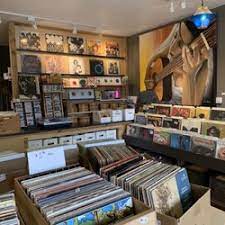Cassette Tapes
History of the Cassette Tape
The Beginning
Throughout the decades technology has improved immensely. As a music lover I have recently taken an interest in finding out how it all started being able to be heard all around the world. Although radio was popular before this time Cassette Tapes are what allowed us to share music and recordings on a much wider scale. The compact cassette (aka. cassette tape) was made by Philips in Hasselt, Belgium. This was to develop a new standard in audio storage. Before there were reel-to-reel recorders that were expensive and hard to use for those who weren't as tech savvy so when the cassette tapes came out reel-to-reels were replaced.The Hype
Many people want to know what was so revolutionary about cassette tapes. Initially the tapes were chunky and had low sound quality but after improvements were made it quickly became the go-to method of recording because of it high quality. Something very unique at the time was that you could create your own mixtapes to play for yourself or even give to a friend/lover. The Sony's Walkman helped bust the popularity of the cassettes because it made music portable for the average person for the first time.The Decline
Cassette tapes hit their peak in the 1980's but had a quick downfall due to the new invention of compact dicks (aka. CDs). By 2001, cassettes had pretty much dropped out for the race as its markets share was less than 5%. After this US companies stopped producing them as the market shifted towards something else. I wonder if the cassette tapes were as "revolutionary" as everyone claimed how did they get wiped out so fast by CDs? For starters they had greater audio quality and greater ability in humid conditions. CDs were also cheaper to produce and a longer lifespan with better data storage capability.Cassettes Today
Today Cassettes have started to make a bit of a comeback. I believe many of this has to do with influences from popular shows such as 13 Reasons Why and just the aesthetic of it all. Trends tend to repeat themselves and although they are making a comeback I do not think they will ever be as popular as they once were. Right now lots of old music products like vinyl and cassettes are being sold in stores like Urban Outfitters, Barnes & Noble, Target, and more.How to Take Care of Your Tapes
Your tapes should be stored between 50-70º F with 20-40% relative humidity for the best possible storage atmosphere. Fast forwarding and then rewinding each tape before storing will give you the best tape position on the inside spools. Storing your tapes upright will help prevent damage to the edges of the tape media. Playing your tapes annually will help prevent any layers of tape from sticking together and ruining playback.
Fun FactsThe original purpose was for recording voices and dictation not music. From 1963 to 1988 which is the cassettes lifespan over 3 billion tapes were sold. The lifespan of the magnetic tape inside an audio cassette is approximately 10-30 year which is why CD's took over so quickly because they last so much longer. If your tape is double sided it is more likely to deteriorate quicker








Comments
Post a Comment